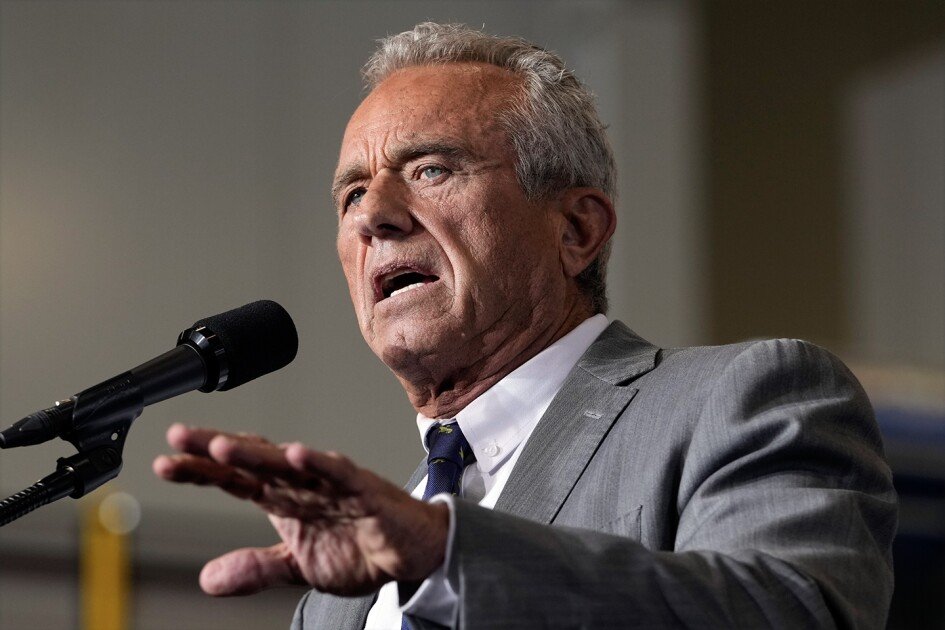While states are responsible for setting their own school vaccination requirements, a Health and Human Services Department led by vaccine skeptic Robert F. Kennedy Jr. could still influence and weaken these requirements. Kennedy, who has a history of making false statements about the safety and efficacy of vaccines, was chosen by President-elect Donald Trump to serve as the secretary of HHS. This appointment has raised concerns among public health experts about the potential impact on vaccination rates and public confidence in vaccines.
One of the key ways in which Kennedy could undermine vaccination requirements is through his influence over the federal agencies responsible for vaccines—the Centers for Disease Control and Prevention (CDC) and the Food and Drug Administration (FDA). These agencies play a crucial role in developing vaccine recommendations and regulating vaccine safety and effectiveness. Kennedy would have the power to influence the makeup of vaccine advisory committees at both agencies, as well as make changes to recommended childhood immunization schedules.
Dr. Georges Benjamin, the executive director of the American Public Health Association, expressed concerns about the potential for Kennedy to sow doubt about vaccines and empower vaccine skeptics. This could have far-reaching consequences, as messaging from federal health officials can filter down to state and local governments, leading to changes in vaccination policies and increased vaccine hesitancy among the public.
The Decline in Childhood Vaccinations
Recent years have seen a decline in childhood vaccination rates, with rates for children born in 2020 and 2021 lower than in previous years. The pandemic also had a negative impact on vaccination rates, with fewer children being up to date on their immunizations. In addition, there has been a trend towards broadening exemptions to school vaccination requirements, making it easier for families to opt out of vaccines for religious or philosophical reasons.
The resurgence of measles cases in 2023, with 10.3 million cases reported worldwide, was attributed to insufficient vaccination coverage. This highlights the importance of maintaining high vaccination rates to prevent the spread of vaccine-preventable diseases.
While the Trump administration did not respond to inquiries about its plans for school vaccination requirements, Kennedy has stated that he is not anti-vaccine and that he will prioritize transparency and access to data for informed decision-making.
The Role of Schools in Public Health
Schools have historically played a critical role in promoting public health through vaccination requirements. The first schools to mandate vaccinations did so in the 1850s to prevent the spread of smallpox. Today, all 50 states require children entering child care, pre-kindergarten, and K-12 schools to be immunized against a range of diseases.
The Supreme Court has upheld school vaccination requirements, affirming the government’s authority to mandate vaccinations for the protection of public health. These requirements help prevent outbreaks of vaccine-preventable diseases and protect the health of students and the broader community.
As the incoming HHS secretary, Robert F. Kennedy Jr. has the potential to shape the future of vaccination policies in the United States. Public health experts emphasize the importance of maintaining high vaccination rates and addressing vaccine hesitancy to protect the health and well-being of the population.
In recent years, schools have not only focused on preventing infectious diseases but have also taken significant steps to prevent chronic diseases such as obesity. Measures like removing soft drinks from vending machines and regularly monitoring students’ body mass index have become common practices in schools. Richard Hughes IV, a lecturer at the George Washington University School of Law and a health lawyer, emphasized the importance of addressing both infectious and chronic diseases in public health efforts.
Hughes highlighted the shift in public health focus towards chronic diseases, alongside infectious diseases. While vaccination requirements have traditionally been determined by individual states, there are federal laws that could potentially influence vaccine policies. The Public Health Services Act of 1944 grants the CDC authority to control communicable diseases and allows the federal government to preempt state laws that conflict with federal authority in this area.
It remains a question whether the federal government could unilaterally set vaccine policies and compel states to comply. This scenario could lead to legal challenges regarding the balance of state and federal powers. Alternatively, the federal government can leverage grant funding to shape state vaccine policies through support for immunization programs.
The CDC’s discretion in distributing grant money opens the possibility of setting conditions related to vaccine schedules or exemptions. However, not all states may agree to these conditions, potentially resulting in a patchwork of vaccine rules across different regions. Maintaining consistency in vaccine practices is crucial to ensure uniformity in healthcare delivery and prevent disparities in medical practices among communities.
Overall, the intersection of state and federal authority in vaccine policy remains a complex issue that requires careful consideration to uphold public health standards and promote disease prevention efforts effectively.


